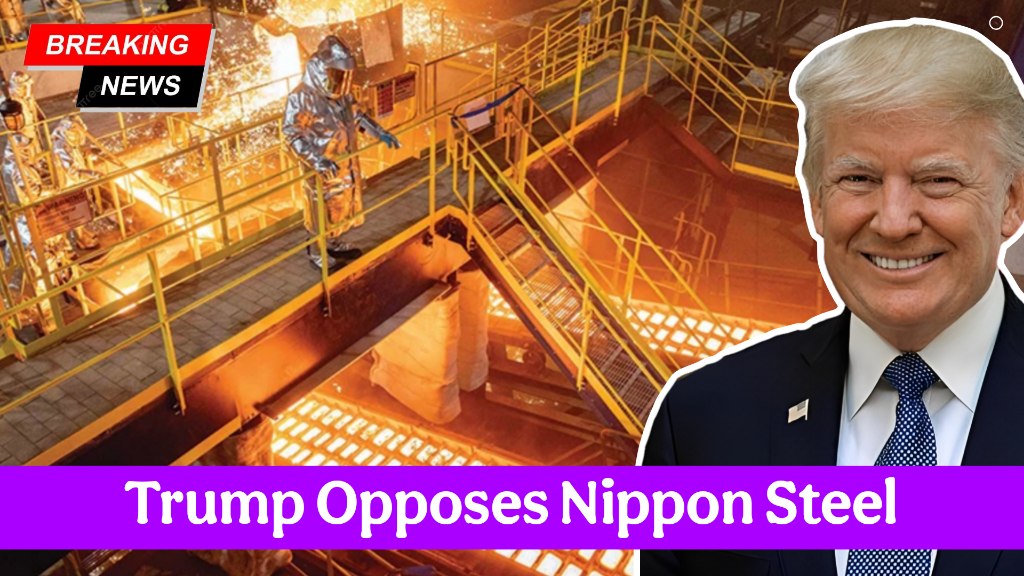Trump Opposes Nippon Steel’s $14 Billion Bid for U.S. Steel – President Donald Trump has voiced strong opposition to Nippon Steel’s proposed $14 billion acquisition of U.S. Steel, declaring that he does not want the iconic American company to fall under Japanese ownership.
His remarks sent U.S. Steel’s stock tumbling by 13%, reflecting investor concerns over the deal’s future. The merger, which has faced bipartisan political resistance, remains in limbo as the Trump administration extends litigation deadlines to further review the transaction.
Also Read: How to Claim Up to $1,500 in IRS Refunds Through Tax Credits
Trump’s Opposition and Market Reaction
Trump’s comments mark a significant escalation in the political battle over the fate of U.S. Steel, one of America’s oldest industrial giants. “I don’t want U.S. Steel going to Japan,” Trump stated, signaling his protectionist stance despite his administration’s ongoing review of the deal.
His remarks immediately impacted financial markets, with U.S. Steel shares plummeting 13% as investors weighed the likelihood of the merger’s collapse.
The backlash is not new—both Trump and President Joe Biden have previously opposed the deal, citing economic and national security concerns. In January, Biden formally blocked the acquisition, arguing that foreign ownership of a key domestic steel producer could undermine U.S. supply chain resilience.
Legal and Political Battles
Nippon Steel and U.S. Steel have pushed back against the government’s resistance, filing a lawsuit against the Committee on Foreign Investment in the United States (CFIUS), which reviews foreign takeovers of American firms.
The companies allege that CFIUS exhibited bias in its evaluation, arguing that the deal would strengthen, rather than weaken, America’s industrial base.
The Trump administration has not outright rejected the merger but has extended legal deadlines to allow more time for review. This move suggests a cautious approach, balancing free-market principles with economic nationalism—a hallmark of Trump’s trade policies during his presidency.
Broader Implications for Trade and Industry
The controversy reflects broader tensions over foreign investment in critical U.S. industries. While free-trade advocates argue that Nippon Steel’s acquisition would modernize U.S.
Also Read: New SSI & SSDI Payouts Up to $1,580 – Eligibility & Dates Inside
Steel and secure jobs, opponents fear losing control of a vital sector to overseas interests. The steel industry remains symbolically and economically significant, tied to national identity and manufacturing competitiveness.
As the 2024 election approaches, both Trump and Biden are likely to continue leveraging the issue to appeal to working-class voters in key industrial states like Pennsylvania and Ohio. The prolonged legal battle could delay any resolution until after the election, leaving U.S. Steel’s future uncertain.




